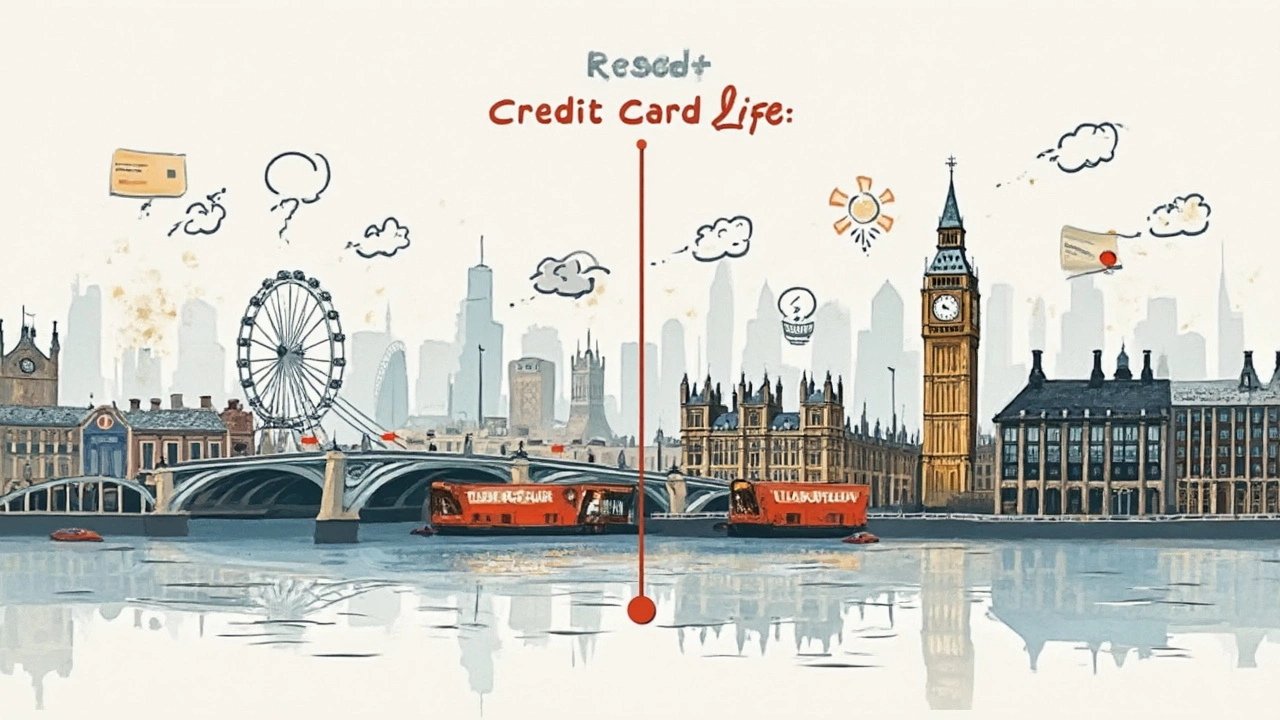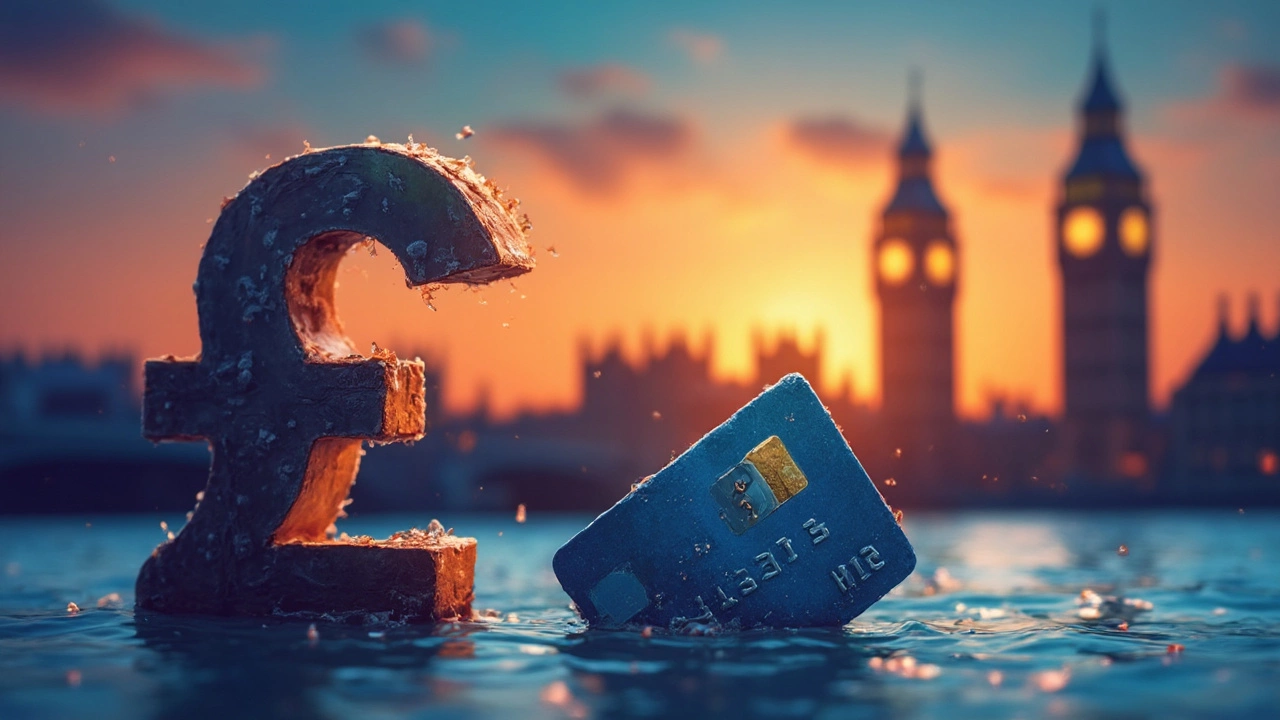Hey there! So, you've got a credit card sitting in your wallet that's more decorative than functional. You're probably wondering, "Should I just stop using it, or go ahead and cut ties entirely?" It's not as simple as it sounds. A lot depends on your financial goals and current credit situation.
First, let's think about credit utilization. This is a fancy term for how much of your available credit you're actually using. Financial experts say it's best to keep this below 30% of your total credit limit. So, not using a card could help lower your utilization ratio, assuming you're using other cards but keeping it in check.
On the flip side, canceling a card can mess with your credit score. Why? Because it reduces your overall available credit, which might hike up your credit utilization percentage. Bummer, right? Plus, if it’s one of your older cards, closing it might shorten your credit history length, affecting another part of your credit score.
So, before you make a decision, there’s a bit to weigh. Do you rely heavily on your credit score coming up shortly? Or is it more about cutting temptation to improve spending habits?
- Understanding Credit Utilization
- Impact on Credit Score
- Pros and Cons of Not Using a Card
- Pros and Cons of Canceling a Card
- How to Decide What's Best for You
- Practical Tips for Managing Credit
Understanding Credit Utilization
Alright, let's talk credit utilization. It's a pretty big deal when it comes to credit scores, and knowing how it works can save you a lot of headaches. Credit utilization refers to the amount of credit you're currently using compared to your total credit limit across all your cards. It's usually expressed as a percentage.
Why should you care? Well, credit utilization makes up about 30% of your credit score. That’s almost a third! The general rule of thumb is to keep it below 30%. This shows lenders that you're not overly reliant on credit and are managing your money well.
Calculating Your Credit Utilization
Here's a simple way to figure out your credit utilization. Let's say you have two credit cards: one with a $5,000 limit and another with a $3,000 limit. If you're carrying a balance of $1,000 on the first and $500 on the second, your total credit is $8,000 and you've used $1,500 of it.
| Total Credit Limit | Total Balance | Credit Utilization |
|---|---|---|
| $8,000 | $1,500 | 18.75% |
In this case, your credit utilization is 18.75%, nicely below the 30% mark. This would generally be seen as a healthy level.
How to Manage Your Credit Utilization
- Keep track of your balances. Knowing what you're spending is crucial to staying below that 30% threshold.
- Pay off your balances before the due date. This can help keep your utilization low and avoid interest.
- Consider asking for a credit limit increase. If you're eligible, increasing your limit without increasing your spending can help lower your utilization percentage.
- Use multiple cards. Spread out expenses across different cards to help keep each card's usage low.
Stay on top of your credit utilization, and you'll be in a good position to maintain a solid credit score. It's all about balance—literally and figuratively.
Impact on Credit Score
So, you might be thinking, why does it even matter if I have a dusty credit card lying around? Well, it does, and here's why. Your credit score isn't just some arbitrary number; it's like your financial reputation. The better it is, the smoother your financial transactions, like getting a loan or even renting an apartment, go.
One biggie is how credit utilization can tweak your score. Canceling a credit card reduces your total available credit. Say you've got $10,000 as your total credit limit, and you usually spend $2,500 a month across all your cards. That’s a 25% utilization rate. Now, if you cancel that card and your total limit drops to $7,000, your utilization rate jumps to about 36%. Bam! That could knock your credit score down a peg or two.
Account Age Matters
There's also the whole thing about the age of your credit accounts. The older your accounts, generally, the better. It shows lenders that you've got a consistent credit history. So, if you've got a credit card that you've had since college, think twice before ditching it. As explained by Jane Smith, a financial advisor at CreditSmart, "Closing an older card can inadvertently shorten your credit history, which is a key factor that lenders consider."
"Your credit score considers both the age of your oldest credit account and the average age of all your accounts. So, don’t be too quick to close those old cards," – Jane Smith, CreditSmart.
Mix It Up
Creditors also love some variety in your credit mix—having a good mix of credit types, like cards, loans, and lines of credit, can enhance your score. If you don't use your card but keep it active, it can still show that diversity without adding debt.
Here's a straightforward cheat-sheet:
- Cutting the card trims your credit limit, potentially boosting your utilization ratio.
- It may reduce your average account age, which factors in negatively on your score.
- But keeping it helps maintain a picture of steady credit use and a mix of credit types.
At the end of the day, if you're thinking about not using or canceling a credit card, just make sure you're fully aware of how it might sway your credit score.
Pros and Cons of Not Using a Card
So, you've decided to keep that credit card safely tucked away, unused. What's the upside? Well, there are quite a few benefits:
Pros
- Maintaining Credit Length: By not canceling it, you're keeping your credit history nice and lengthy, which is up to 15% of your credit score.
- Lower Utilization Ratio: If you have other cards that you do use, not touching this one means your overall credit utilization stays lower. This keeps lenders happy since it looks like you're not overly reliant on borrowed cash.
- Emergency Backup: It's always good to have a backup. If an unexpected cost pops up, having an extra card can be a lifesaver without needing to break your planned payments on another card.
But wait, there are also some downsides:
Cons
- Annual Fees: If it has annual fees, you're essentially paying for a card you're not using. Nobody likes forking out extra cash for nothing!
- Possible Cancellation by the Issuer: Some banks might automatically cancel cards that have been inactive for too long, which could catch you off guard and impact your credit score negatively.
- Missed Rewards: You might miss out on cashback, points, or other credit card perks, which could’ve been valuable if used wisely.
As financial expert Jane Doe puts it,
"Inactive cards, though tempting to hold onto, require periodic review to ensure their benefits outweigh the costs."
Look, whether to use a credit card or let it gather dust is a decision with layers. If it's free or comes with minimal annual fees, using it sparingly might give you the perks with the minimal sting of extra costs. Always weigh the pros and cons because what fits for a friend might not be your cup of tea.

Pros and Cons of Canceling a Card
Alright, so you're thinking of canceling your credit card. Like most things, it's got its ups and downs. Let's break it down.
Pros of Canceling a Card
One of the biggest perks of saying goodbye to a credit card is cutting out the temptation to spend money you might not have. It's a psychological relief to not have access to extra credit if it burns a hole in your pocket every time you walk by your favorite store.
Canceling a card might also free you from annual fees. If you're not using the benefits or rewards that come with a particular card, why pay for something that doesn't provide value?
Cons of Canceling a Card
On the flip side, canceling a credit card can mess with your credit score. As mentioned before, reducing your overall available credit could boost your credit utilization ratio, which might make your score dip. This is crucial if you’re planning to take out a loan in the near future.
Another downside? You could lose the length of your credit history. If the card you cancel has been in your wallet for ages, its absence might shorten your average account age, which is another component of your credit score.
Additional Considerations
Before making a move, ask yourself: Is this card connected to other financial products, like a bank account? Sometimes, closing it can have unintended side effects on those relationships, like altering your bank fees or interest rates.
And if the card offers unique perks, like cashback or travel points that offset fees, it might actually be worth keeping around despite the cost. Always weigh the benefits you get against the fees you pay.
How to Decide What's Best for You
Alright, let’s get into figuring out whether you should just let that credit card collect a little dust, or go all in and cancel it. Here’s what you need to consider.
Review Your Credit Goals
Start with your financial goals. Are you looking to buy a house, or get a new car loan soon? Your credit score plays a big role there, so it might be wise to keep the card open and unused. A higher credit utilization rate can hurt your score, meaning you might pay more in interest on new loans. If your score is in fine shape and you don’t see big purchases ahead, then cancellation might be less impactful.
Check Your Spending Habits
Be honest with yourself—how often do you dip into cards for things you don't really need? If having an unused card is just too tempting, you might be better off cutting it to curb bad spending habits. Lowering available credit might even force you to budget better since you can't rely on plastic for impulse purchases.
Look at the Cost
Consider any annual fees associated with keeping the card. If a credit card racks up fees just for existing, and you're not reaping any rewards or benefits, paying money for something you don’t use is a poor financial move.
| Factor | Keep Card Open | Cancel Card |
|---|---|---|
| Credit Utilization | Lowers utilization rate | May increase utilization rate |
| Credit History Length | Preserves history | Might shorten history |
| Annual Fees | Regular fees might apply | No fees after cancellation |
Decide on Your Strategy
Everyone's situation is different. If your goal is a better credit score, use the card wisely but sparingly. Never forget to keep paying off other debts. However, if you often find yourself overspending, maybe cutting loose a card isn’t so bad as long as it doesn’t overly damage your credit score.
Ultimately, assess your unique circumstances. And hey, no need to rush a decision; it’s better to weigh the pros and cons with a clear head.
Practical Tips for Managing Credit
Managing your credit doesn’t have to be rocket science. With some straightforward guidelines, you can keep your credit score healthy and your finances in check.
Keep an Eye on Your Credit Utilization
As mentioned earlier, credit utilization plays a big role in your credit score. Try to maintain it below 30%. If you've got four cards with a total limit of $10,000, aim to keep your total outstanding balance under $3,000.
Pay Bills On Time
It sounds basic, but timely payments are crucial. Even one missed payment can impact your credit score for a while. Consider setting up automated payments or reminders to avoid this pitfall. It’s all about discipline here.
Review Your Credit Report Regularly
Keep tabs on your credit report. Mistakes happen, and when they do, they can cost you a lot if not addressed. The Fair Credit Reporting Act allows you to get a free report every 12 months from each of the three major credit bureaus.
Avoid Unnecessary New Credit
Each new credit application can cause a small dip in your score, known as a hard inquiry. So, go easy on applying for new cards unless you really need them. Instead, work with what you've got if possible.
Utilize Credit Card Benefits
Your cards might offer perks like travel rewards, cash back, and discounts. Using these wisely can help offset some costs. Don't let the allure of benefits drive unnecessary spending, though.
Consider a Contingency Plan with Unused Cards
If you have a credit card you rarely use, make a small purchase on it occasionally to keep the card active. Just be sure you can pay it off!
You might find the table below useful to track your expenditures and available credit:
| Credit Card | Limit | Balance | Available Credit |
|---|---|---|---|
| Card A | $5,000 | $1,200 | $3,800 |
| Card B | $3,000 | $900 | $2,100 |
| Card C | $2,000 | $400 | $1,600 |
So, managing your credit can be straightforward if you follow these tips. Keep monitoring your habits and make adjustments as needed. It’s like toothpaste—easier to keep things under control if you only squeeze a bit at a time!









